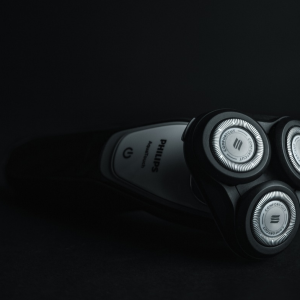Snoring is a common problem that affects millions of people worldwide, often disrupting sleep for both the snorer and their partner. It occurs when the flow of air through the mouth and nose is partially obstructed during sleep, causing vibrations in the throat tissues. While occasional snoring may not be a major issue, chronic snoring can indicate underlying health concerns, such as sleep apnea. Fortunately, there are various tips and remedies to help you stop snoring and improve your sleep quality. This guide explores effective lifestyle changes, sleep habits, and medical interventions that can help reduce or stop snoring altogether.
Lifestyle Changes to Reduce Snoring
Lose Weight for Better Airflow
Excess weight, particularly around the neck and throat, can contribute to snoring by narrowing the airway and increasing tissue pressure. Fat deposits around the neck can cause airway obstruction, making it harder to breathe smoothly during sleep. Losing weight through a balanced diet and regular exercise can reduce this pressure and significantly decrease snoring. If you’re overweight, aim for gradual weight loss by eating nutritious foods, controlling portion sizes, and engaging in physical activities such as walking, jogging, or swimming. A healthier weight not only helps with snoring but also improves overall well-being.
Sleep on Your Side
Sleeping on your back often worsens snoring because gravity causes the tongue and soft tissues in the throat to collapse backwards, partially blocking the airway. To prevent this, try sleeping on your side. If you have difficulty maintaining a side-sleeping position, use a body pillow or place a tennis ball in the back of your pyjama shirt to discourage rolling onto your back. Side sleeping promotes better airflow, reducing snoring and improving sleep quality.
Avoid Alcohol and Sedatives Before Bed
Alcohol and sedatives relax the muscles in the throat, increasing the likelihood of airway collapse and snoring. Drinking alcohol, especially in the evening, can cause more severe snoring episodes. If you consume alcohol, try to do so at least three to four hours before bedtime. Similarly, avoid sedatives unless prescribed by a doctor for medical reasons. Instead, practice relaxation techniques such as deep breathing, meditation, or drinking a cup of herbal tea to promote restful sleep without the need for sleep aids.
Improving Sleep Hygiene to Reduce Snoring
Maintain a Consistent Sleep Schedule
Going to bed and waking up at the same time every day helps regulate your body’s internal clock, leading to better sleep quality. Poor sleep habits, such as staying up too late or having an irregular sleep schedule, can lead to overtiredness, which in turn causes muscles in the throat to relax excessively, leading to snoring. Establish a bedtime routine that includes relaxing activities like reading or taking a warm bath to signal your body that it’s time to sleep.
Elevate Your Head While Sleeping
Raising the head of your bed by a few inches or using an adjustable pillow can help keep your airways open. Elevation reduces the likelihood of airway obstruction by preventing the tongue and soft tissues from collapsing backwards. Specialized anti-snoring pillows are available that support proper head and neck alignment, reducing snoring intensity and in some cases can even stop it. If you prefer a DIY approach, try placing sturdy foam wedges under your mattress or stacking an extra pillow under your head for slight elevation.
Anti-Snoring Aids and Medical Interventions
Use Nasal Strips or a Chin Strap
Nasal strips are adhesive strips placed on the outside of the nose to widen the nasal passages, improving airflow and reducing nasal congestion-related snoring. They are an inexpensive and non-invasive solution that can be particularly effective for people who snore due to nasal blockages.
A chin strap, on the other hand, is a supportive device that keeps the mouth closed during sleep, encouraging nasal breathing rather than mouth breathing. Mouth breathing often leads to throat tissue vibration, causing snoring. By using a chin strap, you can train yourself to breathe through your nose, reducing snoring episodes.
Try a CPAP Machine for Severe Snoring
For individuals suffering from sleep apnea, a Continuous Positive Airway Pressure (CPAP) machine is one of the most effective treatments. CPAP therapy involves wearing a mask connected to a machine that delivers a steady stream of air, keeping the airway open throughout the night. This prevents airway collapse, eliminates snoring, and improves overall sleep quality. If you suspect that your snoring is due to sleep apnea, consult a doctor for a sleep study to determine whether CPAP therapy is suitable for you.
Take Allergy Medications to Reduce Nasal Congestion
Allergies can cause nasal inflammation and congestion, making it difficult to breathe through the nose and leading to snoring. If seasonal or indoor allergens contribute to your snoring, consider using antihistamines or nasal sprays to reduce swelling and open up nasal passages. Keep your bedroom free from allergens by washing bedding frequently, using an air purifier, and keeping pets out of the bedroom. Reducing allergy symptoms can help improve nasal airflow and decrease snoring.
Use Special Pillows to Improve Head and Neck Alignment
Anti-snoring pillows are designed to position the head and neck in a way that keeps the airway open, preventing tissue collapse and reducing snoring. These pillows come in various designs, including contoured memory foam and wedge pillows, which provide support and comfort while promoting better breathing. If you find that traditional pillows contribute to poor sleep posture, investing in a high-quality anti-snoring pillow may be a worthwhile solution.
Try Decongestant Sprays for Short-Term Relief
If nasal congestion is causing your snoring, a decongestant spray can provide temporary relief by shrinking swollen nasal tissues and improving airflow. However, it is important to use these sprays sparingly, as prolonged use can lead to dependency and worsen congestion over time. For long-term nasal health, consider using saline sprays or steam inhalation to keep nasal passages clear.
Last Resort: Ask Your Partner to Use Earplugs
If you’ve tried multiple snoring remedies without success, your partner may benefit from wearing earplugs to block out the noise. While this doesn’t solve the root cause of snoring, it can improve their sleep quality while you continue to explore other solutions. Look for comfortable, high-quality earplugs designed for sleeping to minimize discomfort while effectively reducing noise disturbances.
Snoring can be a frustrating and disruptive problem, but with the right tips and remedies, it is possible to reduce or stop it. Simple lifestyle changes such as losing weight, sleeping on your side, avoiding alcohol before bed, and maintaining good sleep hygiene can significantly improve airflow and reduce snoring. Additionally, using anti-snoring aids like nasal strips, chin straps, CPAP machines, and special pillows can further enhance sleep quality. For those dealing with nasal congestion, allergy medications and decongestant sprays may provide relief. If snoring persists despite trying multiple solutions, consulting a healthcare professional is recommended to rule out underlying conditions like sleep apnea. By taking proactive steps to address snoring, you and your partner can enjoy better, uninterrupted sleep and hopefully stop that snoring altogether.
Discover more from Beardy Blogger
Subscribe to get the latest posts sent to your email.


Leave a Reply